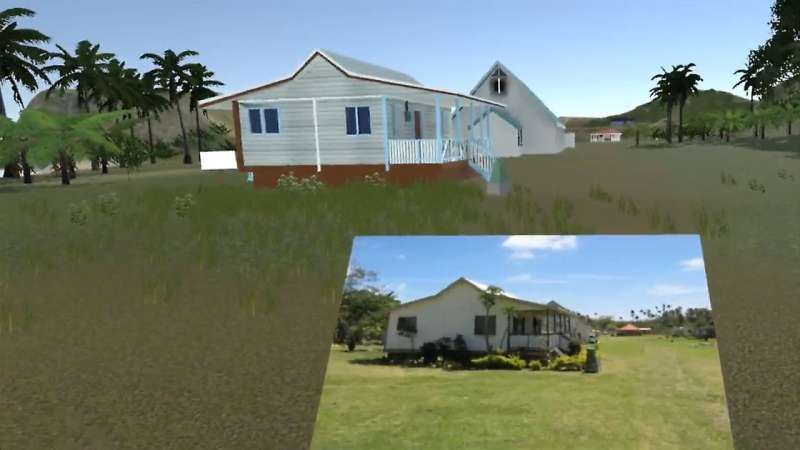Learning through experience in the virtual age

"Tell me and I forget, teach me and I may remember, involve me and I learn."
Building on this pearl of Confucian wisdom, Dr. Christian Schott from Victoria University of Wellington's School of Management is providing experiential learning for the twenty-first century through the use of virtual reality (VR).
Learning through reflection on doing has always been an important tool in educating students by enabling them to bridge theory and practice. For students of sustainable tourism, taking a field trip has been seen as crucial to understanding the realities of life in the far-flung paradises people want to visit.
But it's hard to reconcile emissions-producing plane trips to such locations being affected by climate change, with a course focused on sustainability.
Enter the immersive, interactive and complex environments offered by VR, which Dr. Schott has utilised to replicate an island in Fiji in the throes of developing a local tourism industry. It's a case study, but like nothing currently seen in the area of sustainability studies.
"Using VR like this for teaching freshens things up. It's a true step forward, in terms of helping students understand material," Dr. Schott says.
"There is a very strong case for VR being an experiential learning tool. You experience, you reflect on it, and from all that, you learn. Very powerful. We are the only ones using VR to teach sustainability in this way."
Understanding the needs of local communities impacted by tourism is an essential part of sustainable development, so the virtual island is also populated with actual residents. Students listen to their stories, perspectives and aspirations to gain a more complete understanding of the situation.
"You need that human contact and interaction. So we brought in the stories of about 14 different stakeholders on the island by videoing them speaking to questions. They were then incorporated into the island in the place where they were filmed for their interview," says Dr. Schott.
"It's all about keeping it as authentic as possible, so the students come away with the idea that this is relevant, this is really happening, these are real people dealing with real issues, and this is why sustainability really is important."
Using gaming software paired with the HTC Vive (VR headset) creates a highly immersive experience that also incorporates great sound, like the crashing of waves, which is "quite important to emotionally connect you with and situate you on that island".
"We are making the case for experiential learning as a particular concept within education, and we are looking at what you need in an environment for experiential learning," Dr. Schott says about his current research.
"Many of these components are already inherent in VR and we can utilise this. I think we have something much broader to tell the education community about."
Provided by Victoria University of Wellington


















